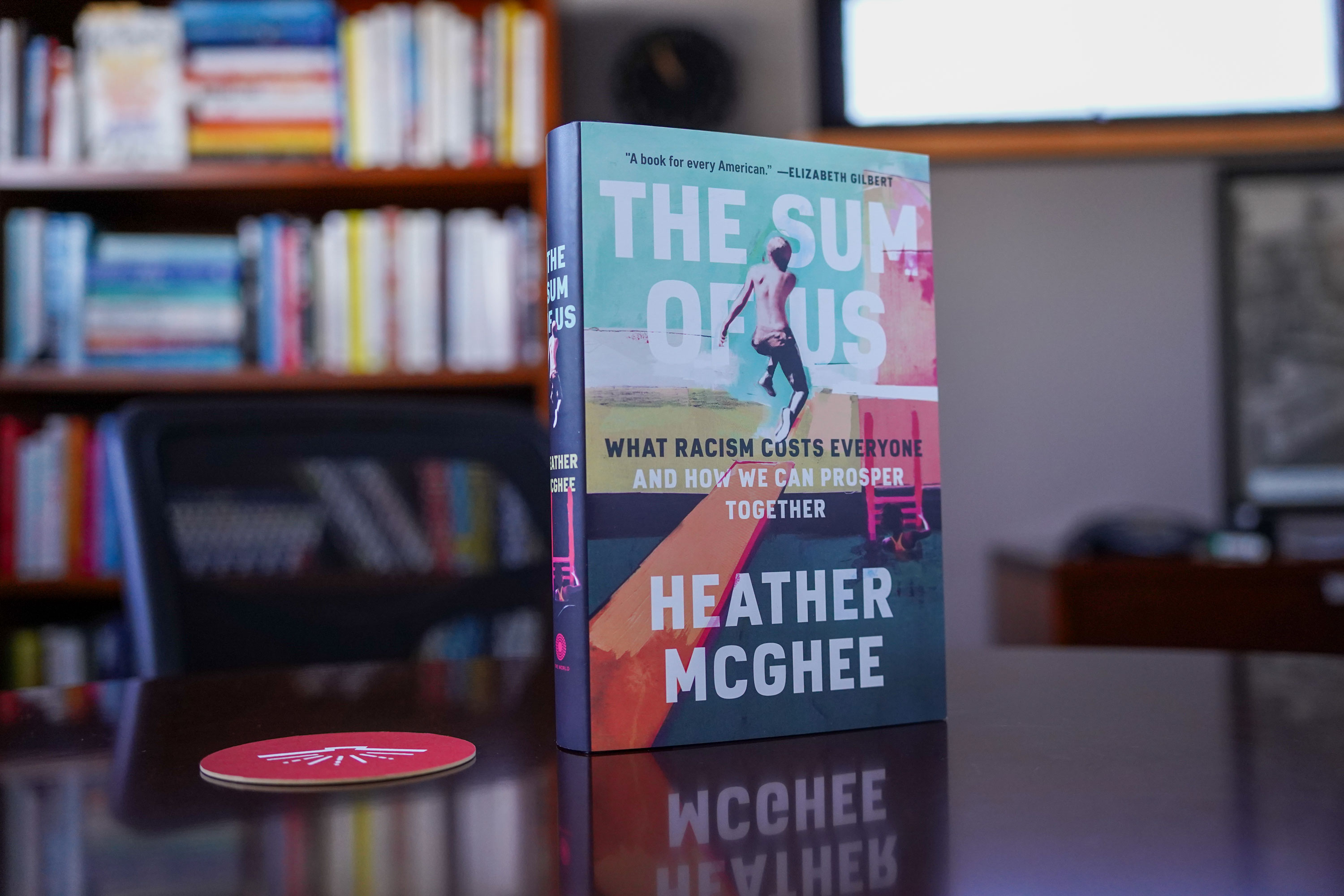-

Tech Agnostic | An Excerpt from the 2024 Porchlight Big Ideas & New Perspectives Book of the Year
The 2024 Big Ideas & New Perspectives Book of the Year is Tech Agnostic: How Technology Became the World's Most Powerful Religion, and Why It Desperately Needs a Reformation by Greg Epstein, published by MIT Press.
-

The Vagina Business | An Excerpt from the 2024 Porchlight Creativity & Innovation Book of the Year
The 2024 Creativity and Innovation Book of the Year is The Vagina Business: The Innovative Breakthroughs That Could Change Everything in Women's Health by Marina Gerner, published by Sourcebooks.
-

Higher Ground | An Excerpt from the 2024 Porchlight Leadership and Strategy Book of the Year
The 2024 Leadership and Strategy Book of the Year is Higher Ground: How Business Can Do the Right Thing in a Turbulent World by Alison Taylor, published by Harvard Business Review Press.
-
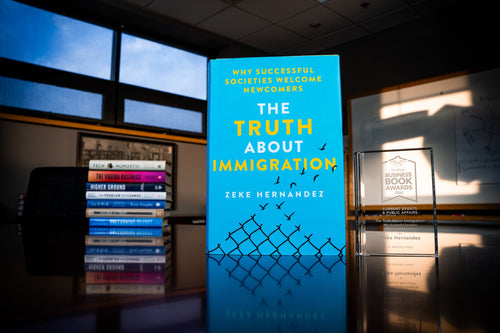
The Truth About Immigration | An Excerpt from the 2024 Porchlight Current Events & Public Affairs Book of the Year
The 2024 Current Events & Public Affairs Book of the Year is The Truth about Immigration: Why Successful Societies Welcome Newcomers by Zeke Hernandez, published by St. Martin's Press.
-
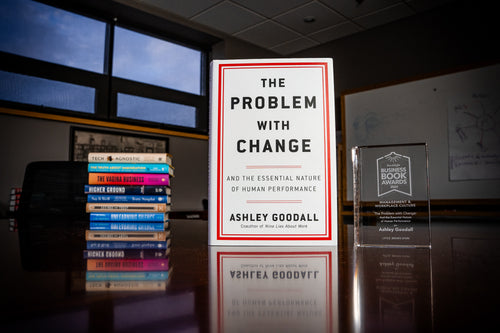
The Problem with Change | An Excerpt from the 2024 Porchlight Management & Workplace Culture Book of the Year
The 2024 Porchlight Management & Workplace Culture Book of the Year is The Problem with Change: And the Essential Nature of Human Performance by Ashley Goodall, published by Little, Brown Spark.
-
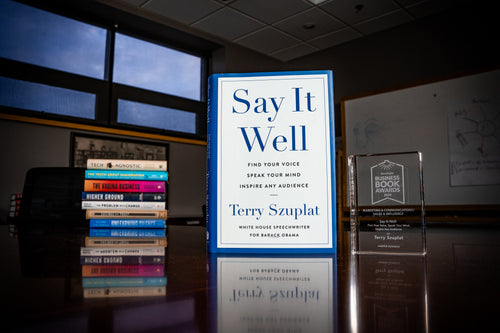
Say It Well | An Excerpt from 2024 Porchlight Marketing & Communications/Sales & Influence Book of the Year
The Marketing & Communications/Sales & Influence Book of the Year is Say It Well: Find Your Voice, Speak Your Mind, Inspire Any Audience by Terry Szuplat, published by Harper Business.
-
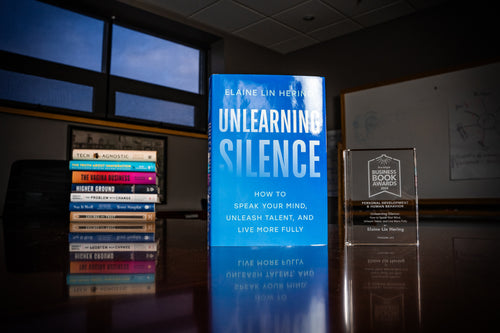
Unlearning Silence | An Excerpt from the 2024 Porchlight Personal Development & Human Behavior Book of the Year
The 2024 Personal Development & Human Behavior Book of the Year is Unlearning Silence: How to Speak Your Mind, Unleash Talent, and Live More Fully by Elaine Lin Hering, published by Penguin Life.
-
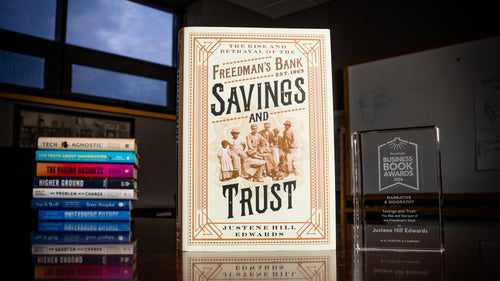
Savings and Trust | An Excerpt from the 2024 Porchlight Narrative & Biography Book of the Year
The 2024 Narrative & Biography Book of the Year is Savings and Trust: The Rise and Betrayal of the Freedman's Bank by Justene Hill Edwards, published by W. W. Norton & Company.
-
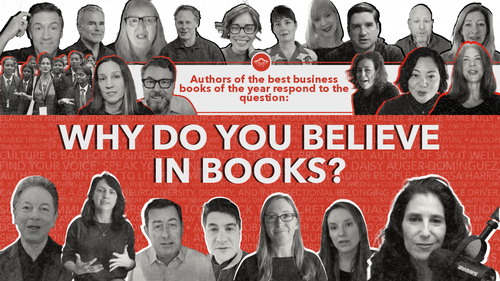
The authors of the best business books of 2024 respond to "Why do you believe in books?"
For the second year in a row, Porchlight asked the authors whose books we selected as the best business books of 2024 the question, "Why do you believe in books?" Their responses were thoughtful, sentimental, reflective, and forward-looking.
-

The 2024 Jack Covert Award for Contribution to the Business Book Industry
Matt Holt is the recipient of the 2024 Jack Covert Award.
-
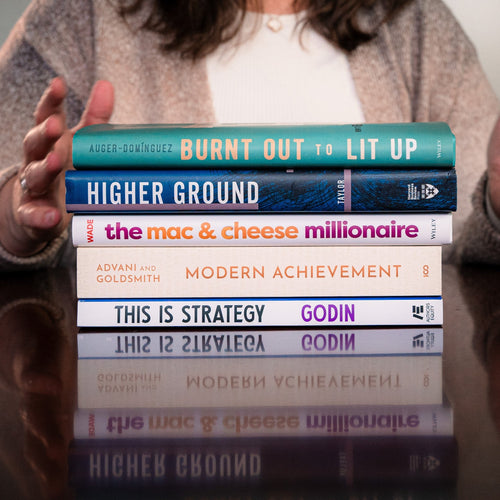
The Best Leadership & Strategy Books of 2024
Each of the top five leadership and strategy books for 2024 spoke to and respected a different type of leader, and each will help you discover what kind of leader you want and need to be.
-
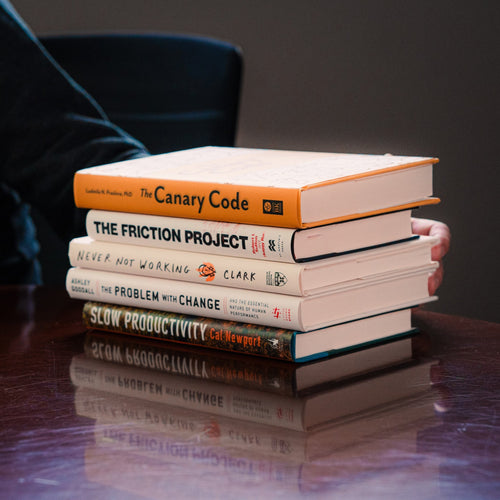
The Best Management & Workplace Culture Books of 2024
Modern organizations are plagued with performative work and confusing policy, much of it the result of poor management and a lack of clear communication. At a time when so much attention is being given to how AI will affect our work, we found four books that focus on what humans can do to build better workplaces.
-
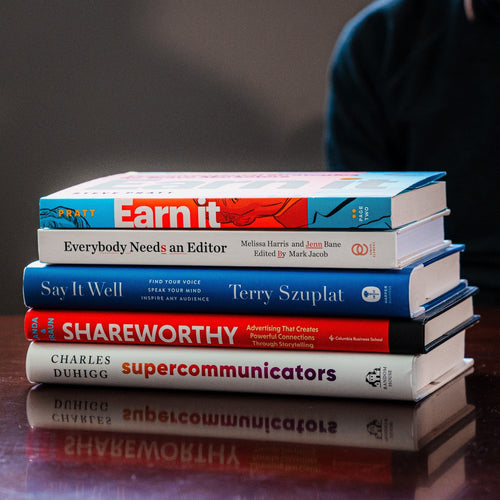
The Best Marketing & Communications/Sales & Influence Books of 2024
Attention is the world’s most valuable resource, and learning how to earn it—how to seize and hold someone’s attention in your writing, while speaking in public, or in the brief moment an ad is in front of them, and how to offer it back when talking in person with others—is critical for every conversation and every company. These five books can help.
-
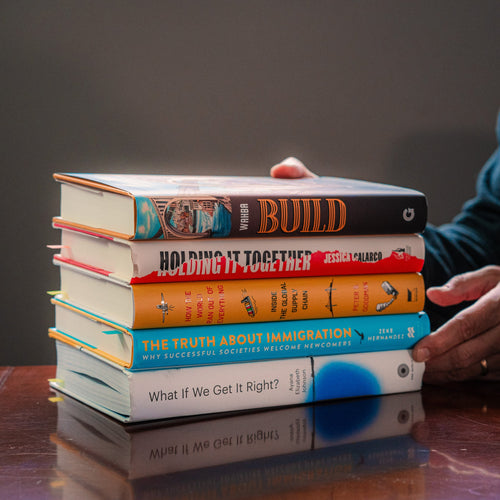
The Best Current Events & Public Affairs Books of 2024
The greatest challenges we face today offer some of our greatest opportunities for growth. We just need the civic imagination and collective will to seize them, to build new things and embrace new approaches. The best Current Events & Public Affairs books of 2024 all addressed that need in some way.
-
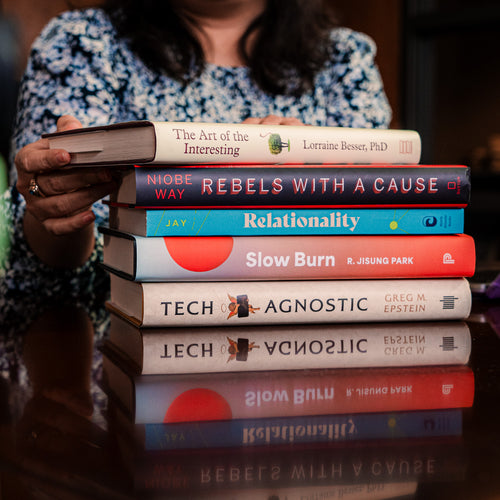
The Best Big Ideas & New Perspectives Books of 2024
Humans are social beings designed for connection.
-
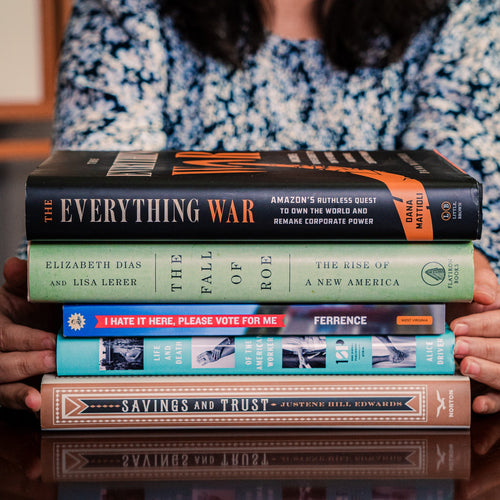
The Best Narrative & Biography Books of 2024
These five books reveal overlooked parts of our history and the forces shaping our lives, encouraging us to confront adversity to make the world a better place.
-
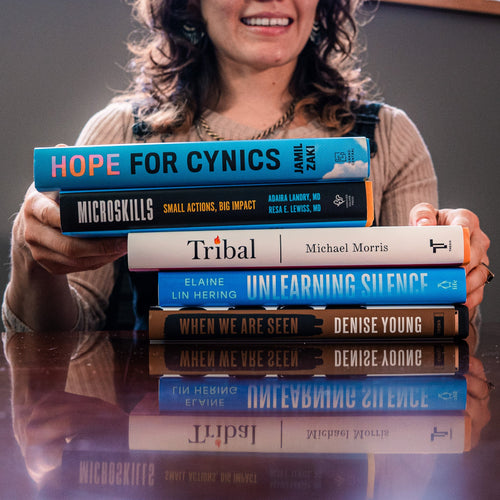
The Best Personal Development & Human Behavior Books of 2024
These books help us better understand and appreciate ourselves and one another, forcing us to take a step back and reflect on how we all need each other, not just to exist, but to succeed and flourish.
-
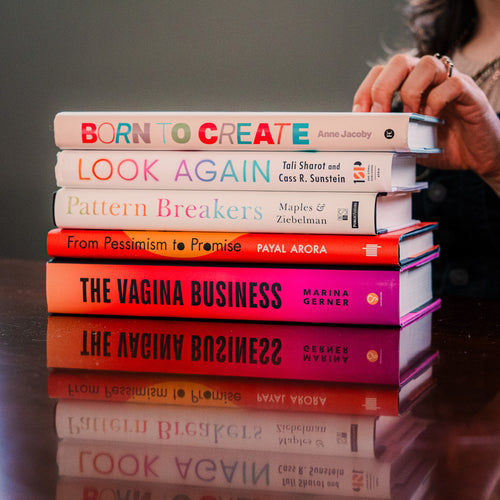
The Best Innovation & Creativity Books of 2024
With compelling voices, these books excite readers to investigate problems, acuminate ideas, and lead with an open-mind and the desire to change the world for the better.
-

The 2024 Porchlight Business Book Awards Longlist
The 40 books on this year's list of best business books provide a bastion against the tide of overwhelm that we all feel, grounding us with clear-eyed practical and practiced ways to do the work that will effectively bring positive change to our own personal and professional spaces and places.
-
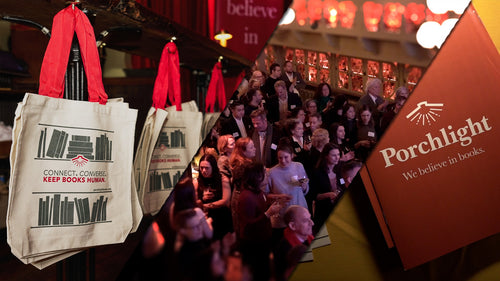
Porchlight Book Company's 2023 Publishing Industry Appreciation Party
Look back at our publishing industry appreciation party through photos and a recap video.
-
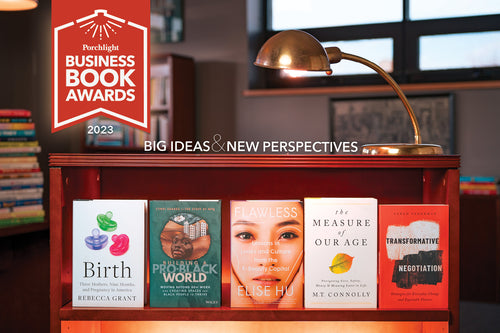
The 2023 Porchlight Business Book Awards | Big Ideas & New Perspectives
These are the books selected for the 2023 Big Ideas & New Perspectives category, curated by Porchlight's Managing Editor Jasmine Gonzalez.
-
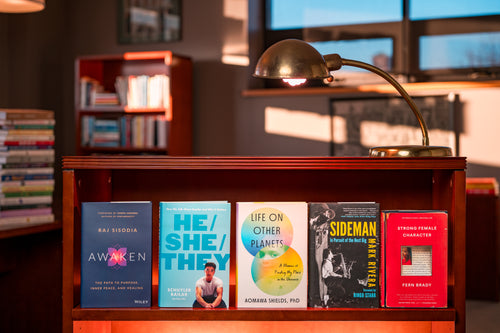
The 2023 Porchlight Business Book Awards | Narrative & Biography
These are the books selected for the 2023 Narrative & Biography category, curated by Porchlight's Managing Editor Jasmine Gonzalez.
-
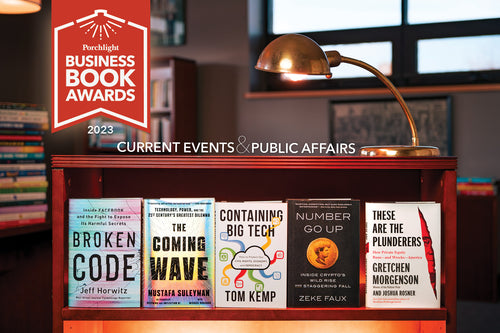
The 2023 Porchlight Business Book Awards | Current Events & Public Affairs
Looking for the year's best Current Events & Public Affairs books? Porchlight's Marketing & Editorial Director Dylan Schleicher has you, and those books, covered.
-
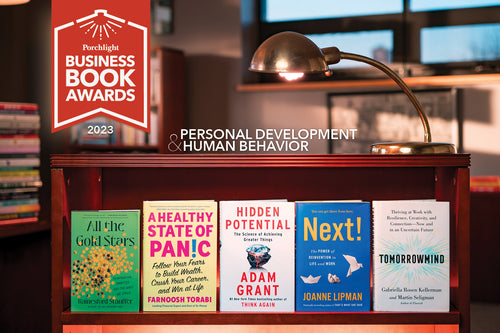
The 2023 Porchlight Business Book Awards | Personal Development & Human Behavior
None of these books are directly about happiness, but follow their advice and you'll feel a lot happier about where you are and where you're headed.
-
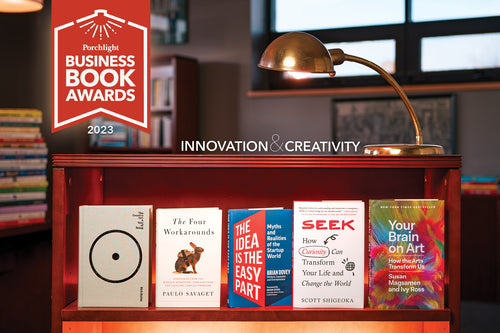
The 2023 Porchlight Business Book Awards | Innovation & Creativity
Our Creative Director Gabriella Cisneros describes how the best innovation and creativity books of 2023 connect to each other and help us readers connect to each other, too.
-
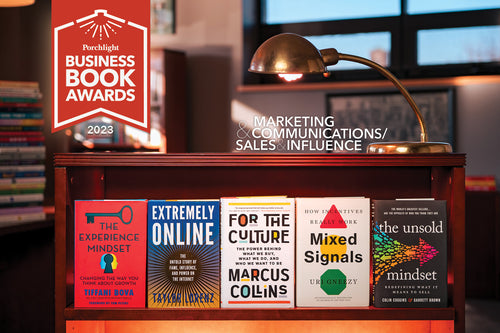
The 2023 Porchlight Business Book Awards | Marketing & Communications/Sales & Influence
Porchlight's Marketing & Editorial Director Dylan Schleicher looks at the year's best book in the Marketing & Communications/Sales & Influence category.
-
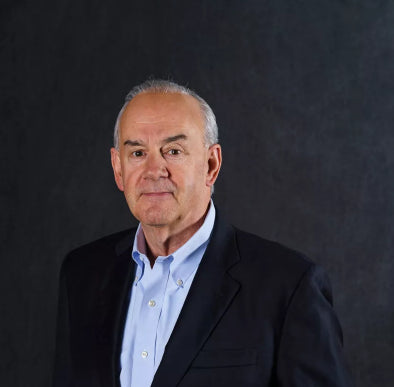
The 2023 Jack Covert Award for Contribution to the Business Book Industry
Rick Wolff is the recipient of the 2023 Jack Covert Award.
-
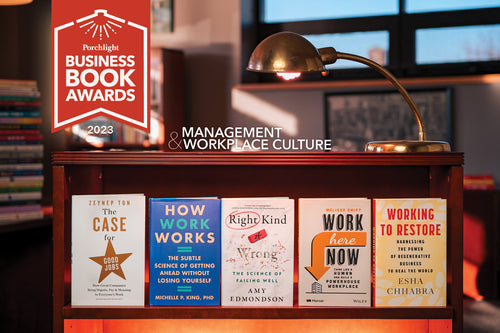
The 2023 Porchlight Business Book Awards | Management & Workplace Culture
Porchlight's Marketing & Editorial Director Dylan Schleicher takes us inside 2023's best Management & Workplace Culture books.
-
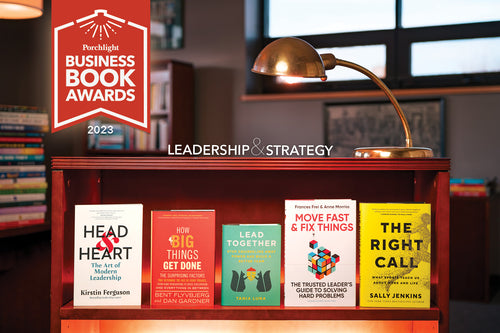
The 2023 Porchlight Business Book Awards | Leadership & Strategy
Porchlight's Managing Director Sally Haldorson dives into 2023's best books in the Leadership & Strategy category.
-

The 2023 Porchlight Business Book Awards
These 40 books spoke to us—and we believe speak to each other—in a way that furthers the conversations we need to have in the organizations we work in, the communities we live in, and the societies that shape us. With them as a guide, we can make decisions that better shape each, in turn.
-
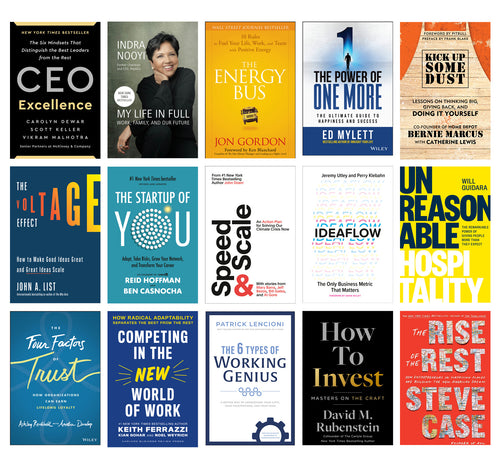
Porchlight Book Company's Bestselling Books of 2022
We love reading books, but our main purpose as a company is to get them in the hands of others.
-
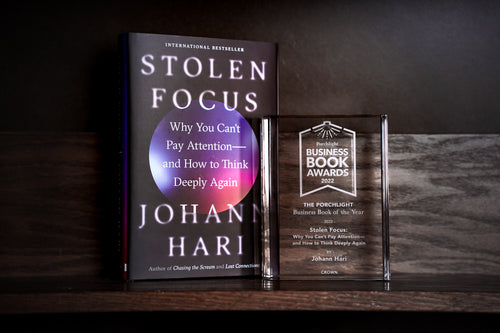
Stolen Focus by Johann Hari is the 2022 Porchlight Business Book of the Year
In one insightful instance after another, Johann Hari demonstrates the ways in which our attention is deliberately hijacked, and how to get it back.
-
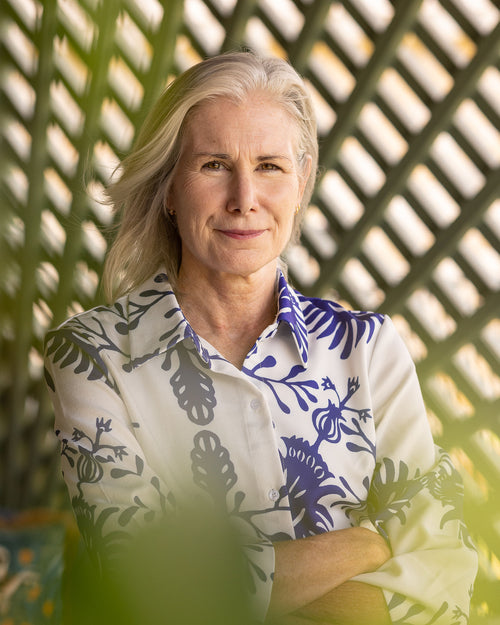
The 2022 Jack Covert Award for Contribution to the Business Book Industry
Barbara Cave Henricks is the recipient of the 2022 Jack Covert Award.
-
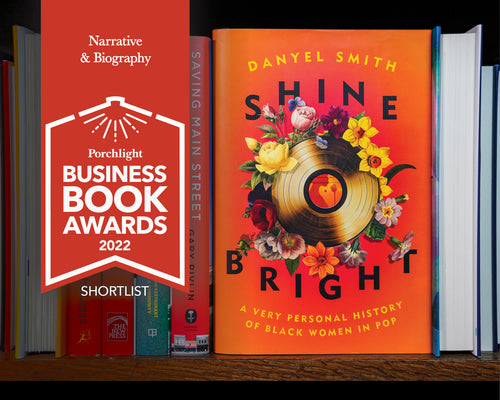
Shine Bright | An Excerpt from the 2022 Porchlight Narrative & Biography Book of the Year
The 2022 Narrative & Biography Book of the Year is Shine Bright: A Very Personal History of Black Women in Pop by Danyel Smith, published by Roc Lit 101.
-
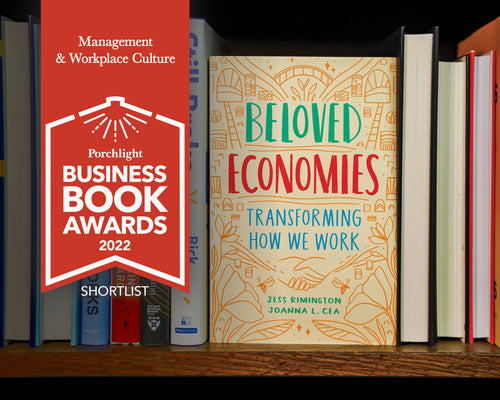
Beloved Economies | An Excerpt from the 2022 Management & Workplace Culture Book of the Year
The 2022 Management & Workplace Culture book of the year is Beloved Economies: Transforming How We Work by Jess Rimington and Joanna Levitt Cea, published by Page Two.
-
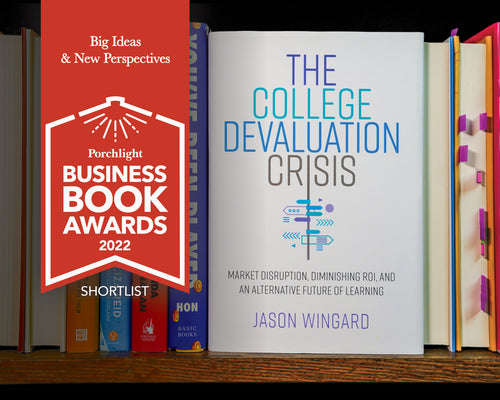
The College Devaluation Crisis | An Excerpt from the 2022 Porchlight Big Ideas & New Perspectives Book of the Year
The 2022 Big Ideas & New Perspectives book of the year is The College Devaluation Crisis: Market Disruption, Diminishing ROI, and an Alternative Future of Learning by Jason Wingard, from Stanford Business Books.
-
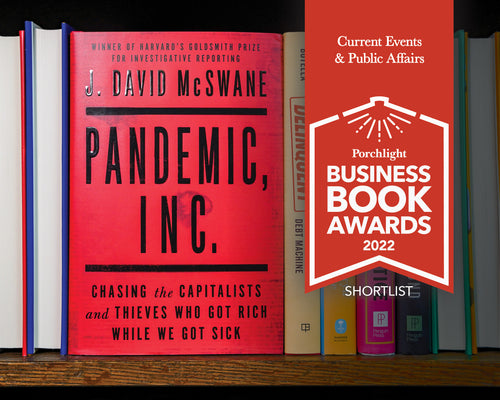
Pandemic Inc. | An Excerpt from the 2022 Porchlight Current Events & Public Affairs Book of the Year
The 2022 Current Events & Public Affairs book of the year is Pandemic Inc.: Chasing the Capitalists and Thieves Who Got Rich While We Got Sick by J. David McSwane, from One Signal Publishers.
-
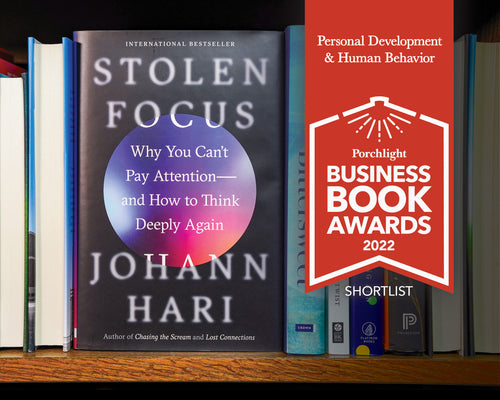
Stolen Focus | An Excerpt from the 2022 Porchlight Personal Development & Human Behavior Book of the Year
The 2022 Personal Development & Human Behavior book of the year is Stolen Focus by Johann Hari, published by Crown.
-
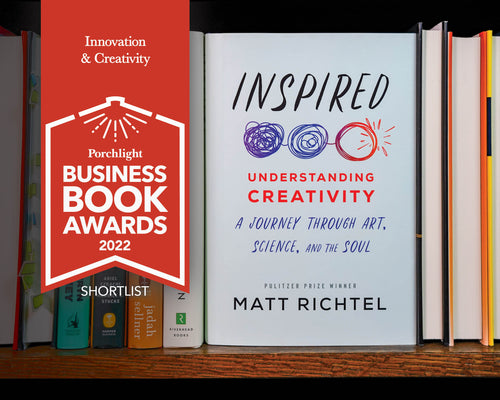
Inspired | An Excerpt from the 2022 Porchlight Innovation & Creativity Book of the Year
The 2022 Innovation & Creativity book of the year is Inspired by Matt Richtel, published by Mariner Books.
-
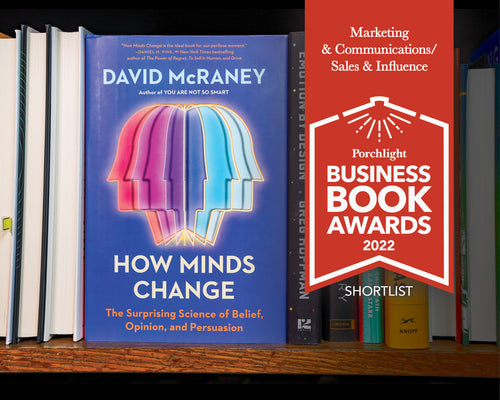
How Minds Change | An Excerpt from the 2022 Porchlight Marketing & Communications/Sales & Influence Book of the Year
The 2022 Marketing & Communications/Sales & Influence book of the year is How Minds Change: The Surprising Science of Belief, Opinion, and Persuasion by David McRaney, published by Portfolio.
-
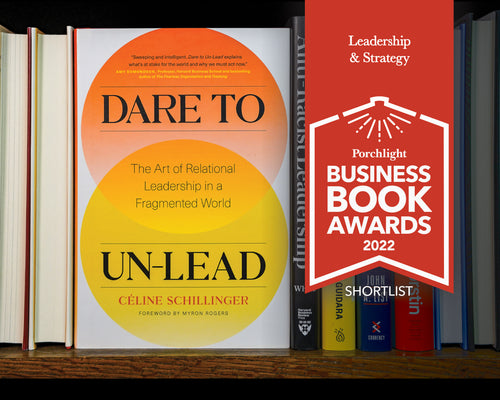
Dare to Un-Lead | An Excerpt from the 2022 Porchlight Leadership & Strategy Book of the Year
The 2022 Leadership & Strategy book of the year is Dare to Un-Lead: The Art of Relational Leadership in a Fragmented World by Céline Schillinger, published by Figure 1.
-

The 2022 Porchlight Business Book Awards Shortlist
There isn’t anywhere better to slow down, to dive deeper into things, to learn about and reflect upon the world, than in a book. The best books transcend their time and space, even as they help us define our present moment and put it in context.
-
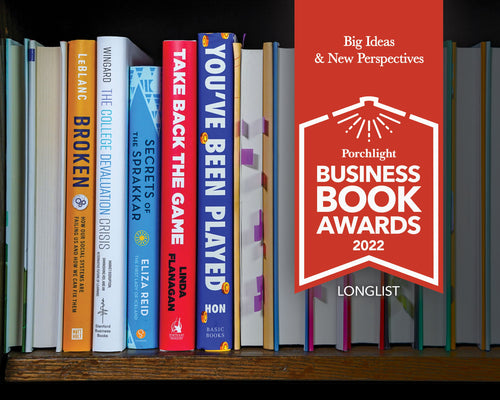
Inside the 2022 Longlist | Big Ideas & New Perspectives
When we take a look beyond our own front doors to learn from the world around us, we might find that the ideas that feel like mere pipe dreams now can—and in some places, already have—become our reality.
-
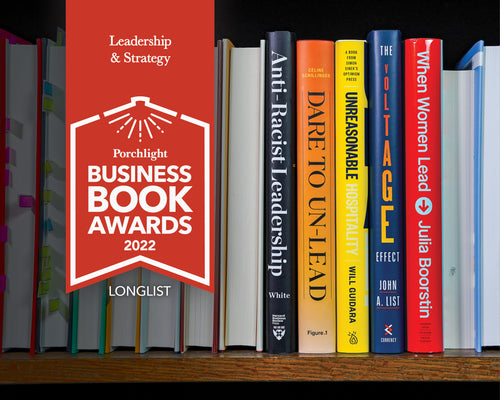
Inside the 2022 Longlist | Leadership & Strategy
Our Managing Director Sally Haldorson calls upon a short story of Raymond Carver's to help us understand why it seems so impossible, and why it's so important, to talk about leadership.
-
Inside the 2022 Longlist | Personal Development & Human Behavior
We are creatures that need guidance, love, compassion, and (we believe in) books that bring us back to considering and working on ourselves, which is what this category is all about.
-
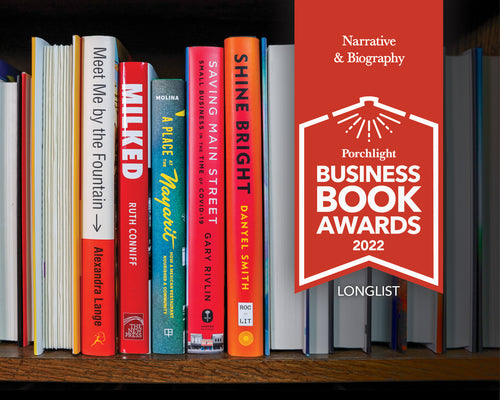
Inside the 2022 Longlist | Narrative & Biography
Like fiction, narratives and biographies can help us empathize with and even inhabit, for a brief moment in the pages of a book, the mindsets and experiences of other people. It allows us to peek into the lives of individuals, see inside organizations, and visit other places without having to leave our reading chair.
-
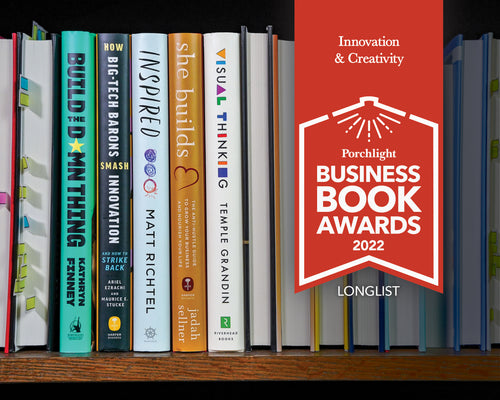
Inside the 2022 Longlist | Innovation & Creativity
These five books will prompt you to ask questions about yourself and the world around you, and it is in this inner-searching and outward observation that we will find, innovate, and create a better world for us all.
-
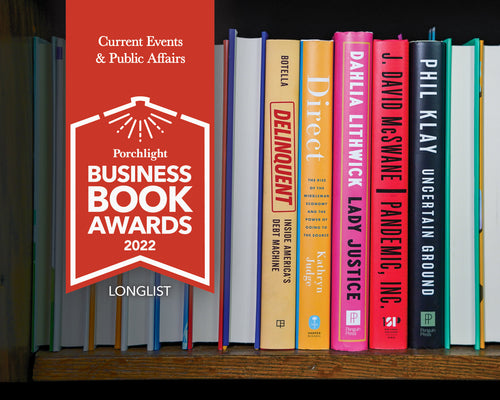
Inside the 2022 Longlist | Current Events & Public Affairs
It seems like each and every category of our awards has elements of Current Events & Public Affairs percolating within them, but that doesn't negate the need for a dedicated category. These are the five best books in that space this year.
-
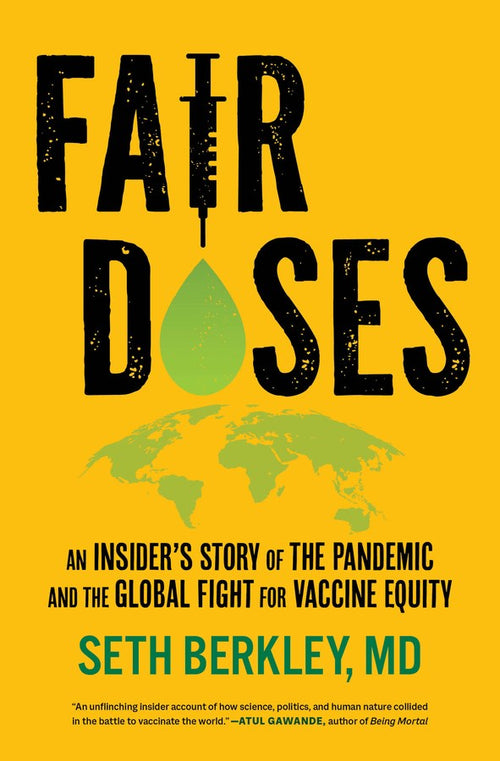
An Excerpt from Fair Doses by Seth Berkley
How vaccines became the world's most powerful and widely distributed health intervention, and the inside story of the challenging race to deliver COVID-19 vaccines globally.
-
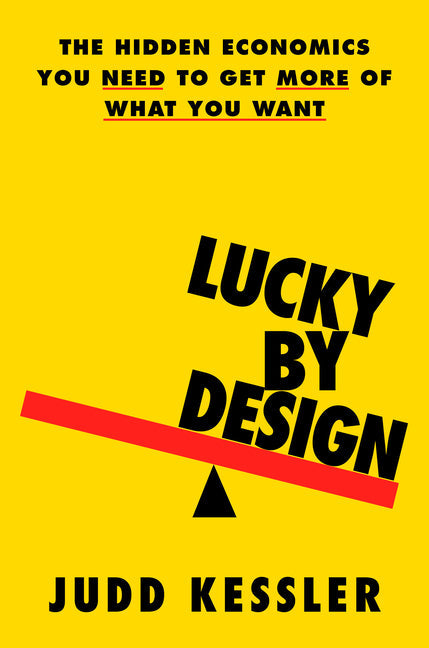
An Excerpt from Lucky By Design
Wharton economist and market designer Judd Kessler pulls back the curtain on hidden markets that determine who gets what in everyday life—and how to tip the scales in your favor.
-
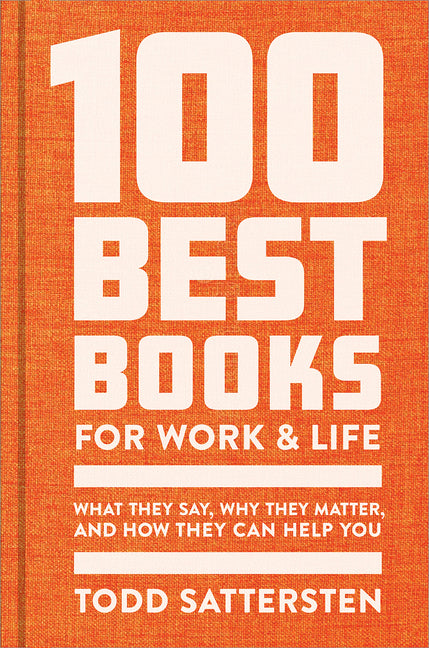
An Excerpt from 100 Best Books for Work and Life
100 Best Books for Work and Life will help you cut through the clutter and discover the books that are worth your time and will enrich your life.
-
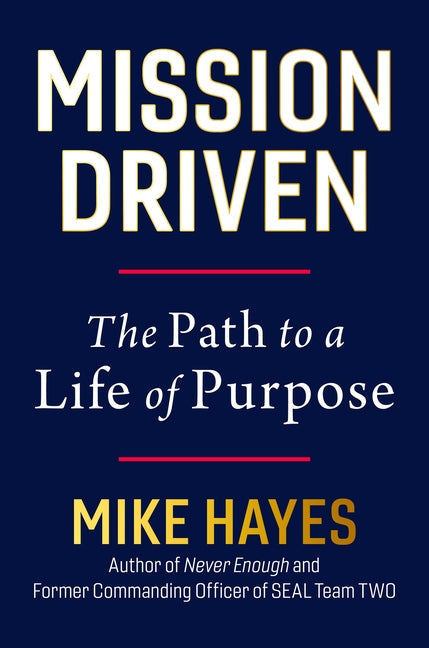
An Excerpt from Mission Driven: The Path to a Life of Purpose
Former Navy SEAL commander, White House Fellow, and nonprofit and business leader Mike Hayes offers an inspiring playbook for understanding and achieving your most rewarding and purposeful life.
-
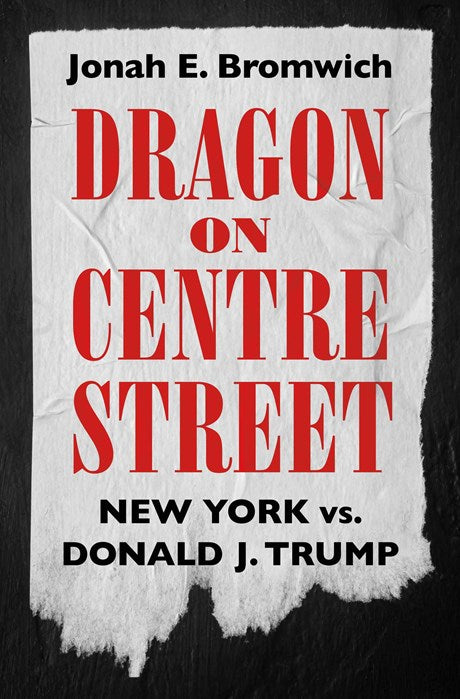
An Excerpt from Dragon on Centre Street
In this excerpt from Dragon on Centre Street, New York Times reporter Jonah E. Bromwich recounts how he and his team covered the unfolding story of the unprecedented indictment of a former U.S. president.
-
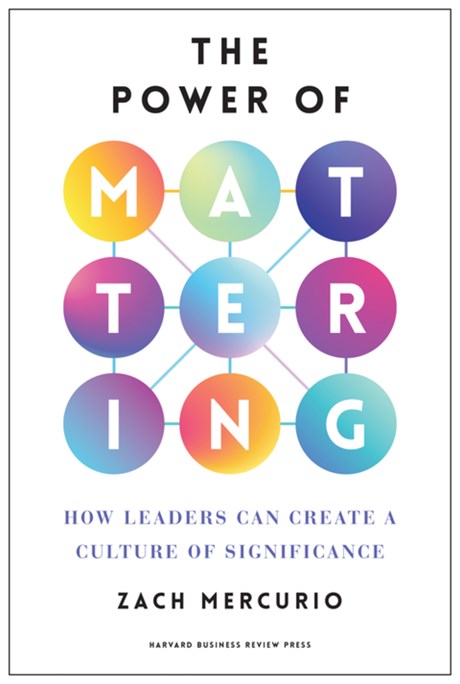
An Excerpt from The Power of Mattering
People thrive when they are seen, heard, and valued. Leadership development facilitator Zach Mercurio offers a simple framework for making workplace interactions more meaningful and affirmative.
-
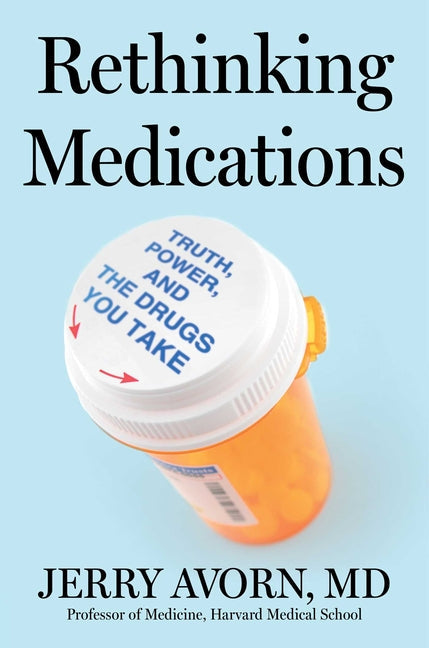
An Excerpt from Rethinking Medications
Many medications taken by Americans are either excessively expensive or carry significant risks. Dr. Jerry Avorn shares his insights on how we got here and proposes practical solutions to improve the system.
-
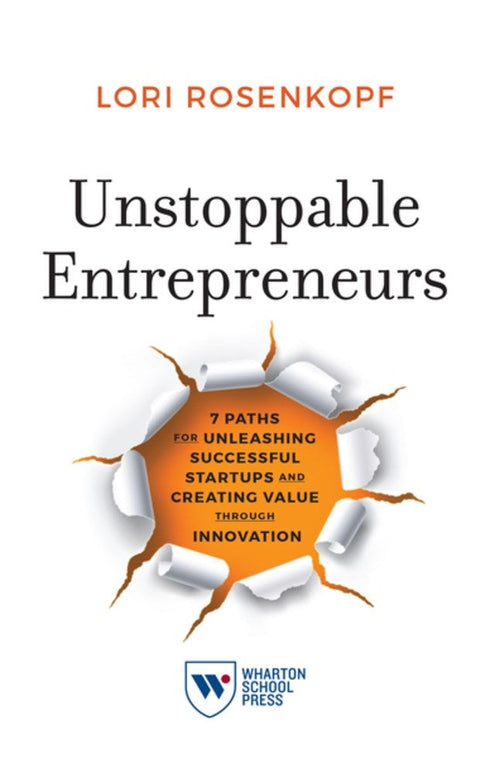
An Excerpt from Unstoppable Entrepreneurs
Lori Rosenkopf, Vice Dean of Entrepreneurship at the Wharton School, offers a guidebook encouraging readers to tap into their entrepreneurial potential.
-
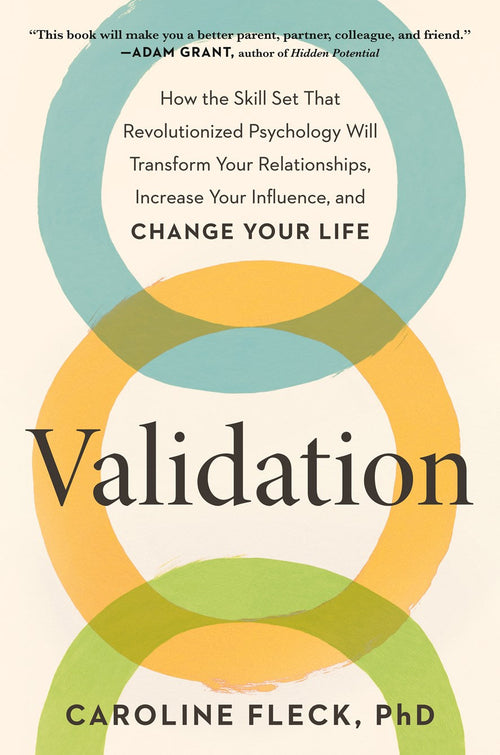
An Excerpt from Validation
Clinical psychologist Caroline Fleck highlights validation—the acceptance of others' views and values—as a key to influencing others and fostering harmony in the workplace.
-
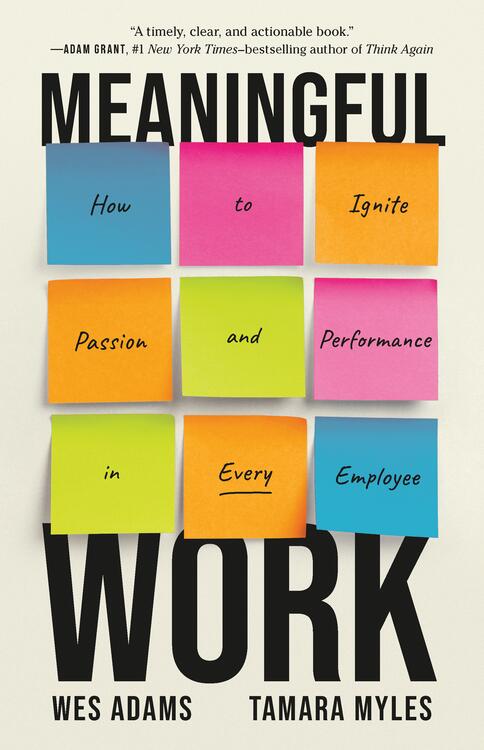
An Excerpt from Meaningful Work
Wes Adams and Tamara Myles write that strong employee engagement, happiness, and productivity stem from leaders helping employees find meaning in their work.
-

An Excerpt from Wild Courage
Google executive Jenny Wood writes about nine unconventional personal traits that, when effectively utilized, can lead to life-changing success.
-
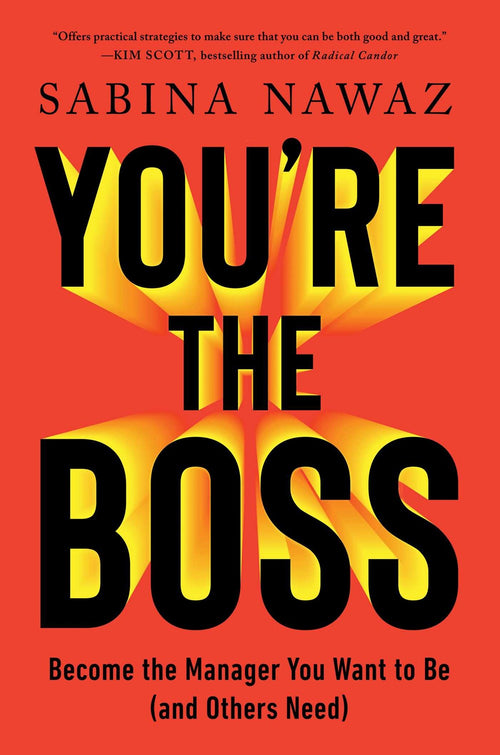
An Excerpt from You're the Boss
Executive coach Sabina Nawaz offers a guide on gracefully managing the pressures of power, helping readers become the leaders they aspire to be and whom others are excited to work with.
-
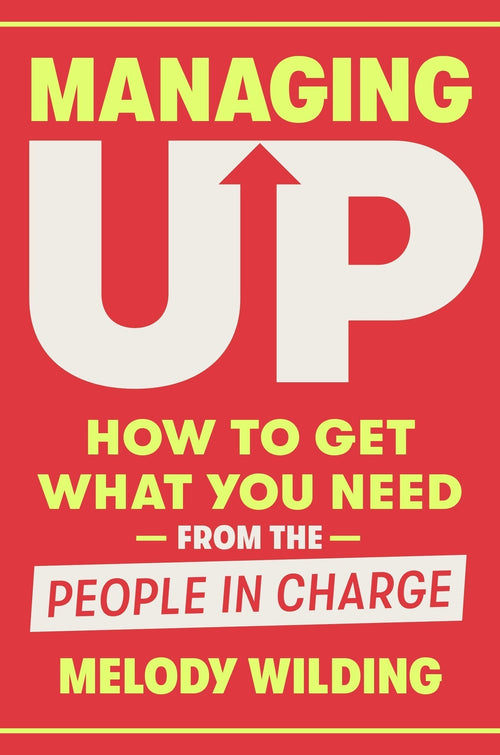
An Excerpt from Managing Up
To cultivate a lasting professional relationship, focus on how you can help the other person, writes executive coach Melody Wilding.
-
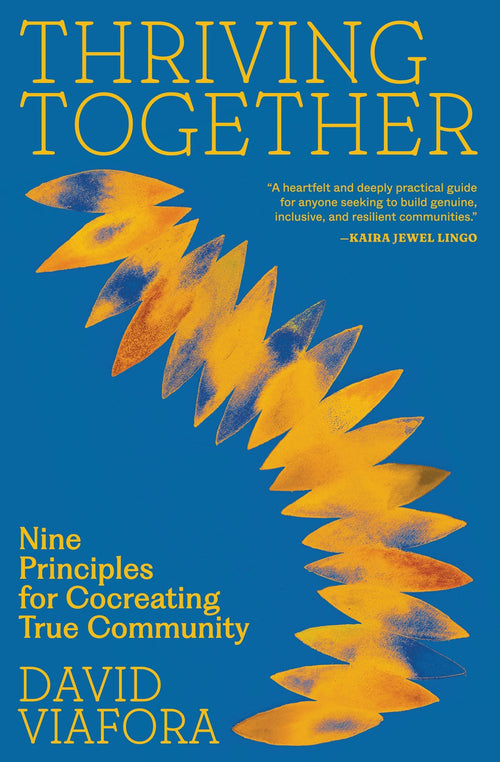
An Excerpt from Thriving Together
Expert community builder and former Buddhist monk David Viafora writes that the simple act of showing appreciation for one another has the power to nurture thriving communities.
-
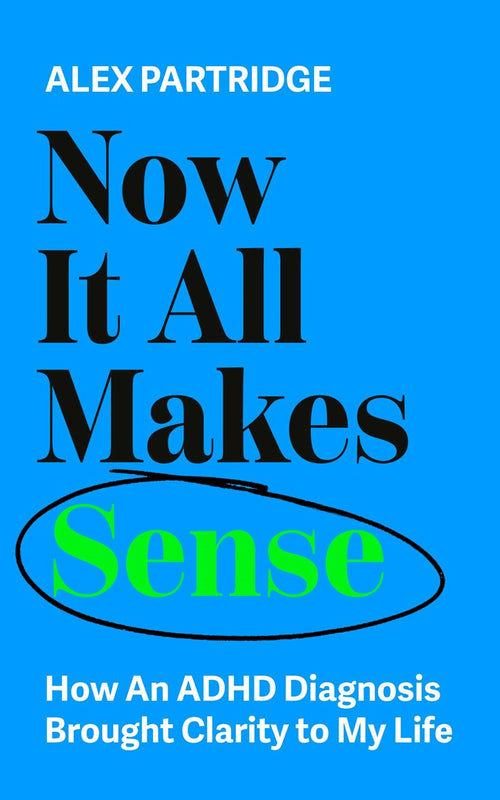
An Excerpt from Now It All Makes Sense
Alex Partridge, mental health advocate and host of the podcast ADHD Chatter, shares his life story and strategies for living and thriving with ADHD.
-
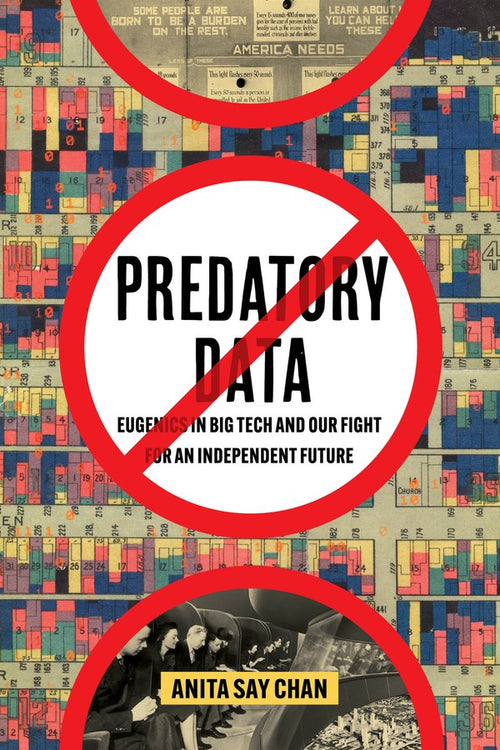
An Excerpt from Predatory Data
To shape the future of tech, we must look to the past and draw from the traditions of the researchers, artists, and activists who have envisioned futures that defy probability, writes scholar Anita Say Chan.
-
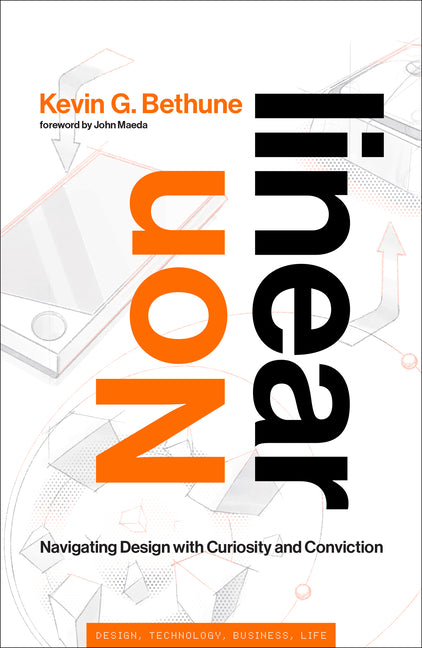
An Excerpt from Nonlinear
Kevin Bethune highlights the necessity of incorporating a broader range of perspectives in the design process, resulting in innovative solutions that more accurately reflect and address our diverse society.
-
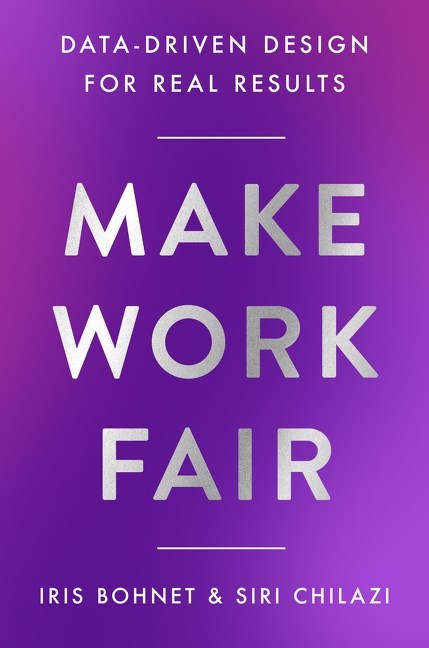
An Excerpt from Make Work Fair
Believing in equal opportunity is essential—but it isn’t enough. Offering an evidence-based blueprint, Make Work Fair shows you how to make it a reality, no matter your role, seniority, responsibilities, or where you are in the world.
-
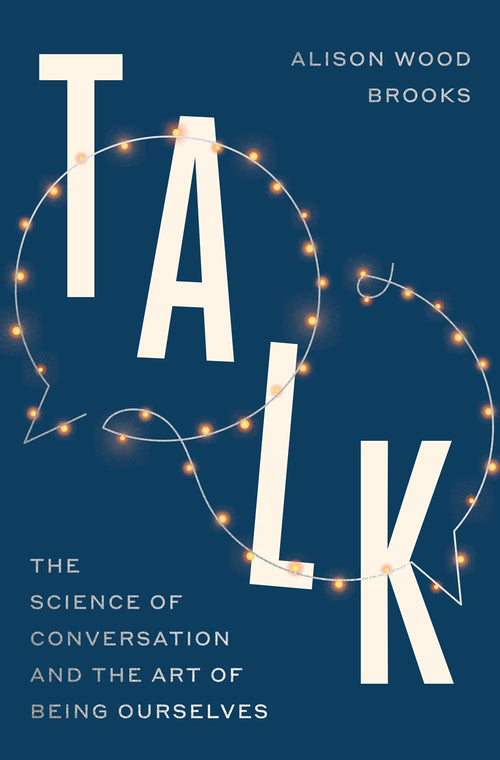
An Excerpt from Talk
Even the simplest conversations can be tricky, but when done well, they can become sources of immense joy that make us feel cherished and alive, writes Dr. Alison Wood Brooks.
-
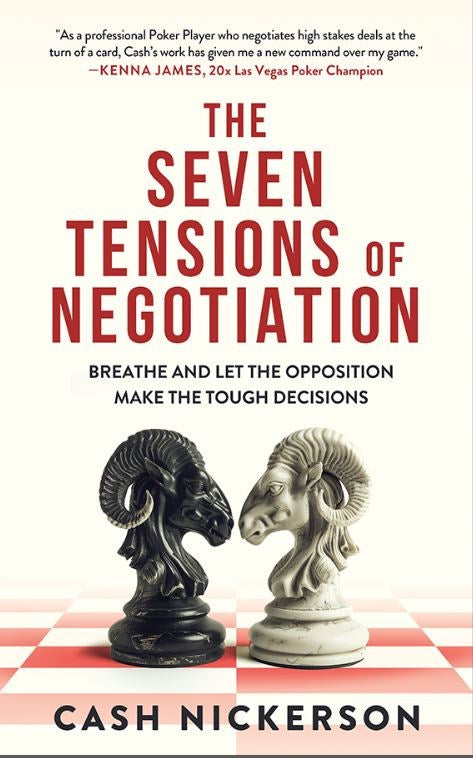
An Excerpt from The Seven Tensions of Negotiation
Sitting down to negotiate is like getting ready to throw or defend against a punch — we feel the tension. When we teach ourselves to feel, assess, neutralize, and respond to tension, we can successfully maneuver any negotiation.
-
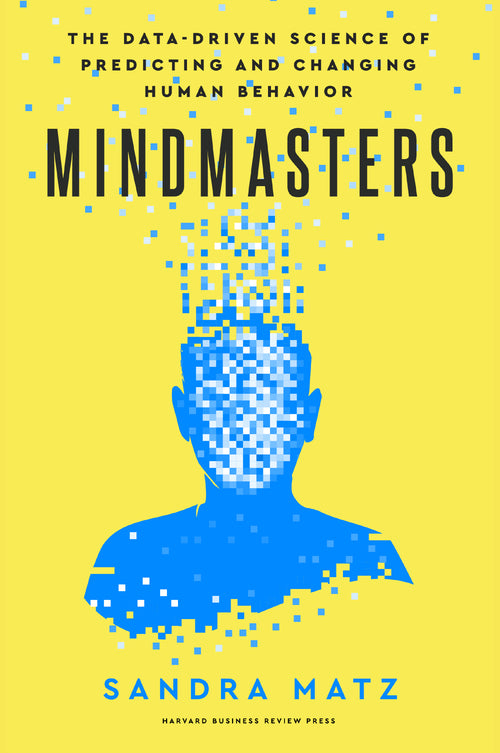
An Excerpt from Mindmasters
Algorithms influence our psychological experiences, often without our awareness. However, Sandra Matz argues that we can unite to leverage big data for our benefit. benefit.
-
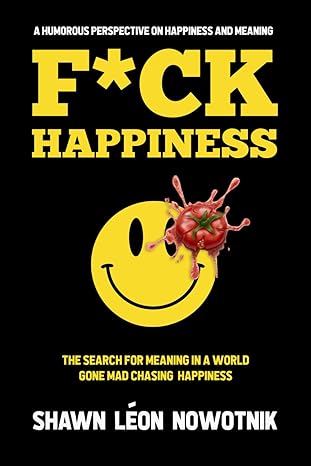
An Excerpt from F*ck Happiness
Artist and therapist Shawn Léon Nowotnik encourages readers to think beyond pursuing happiness and embrace all of life's complexities.
-
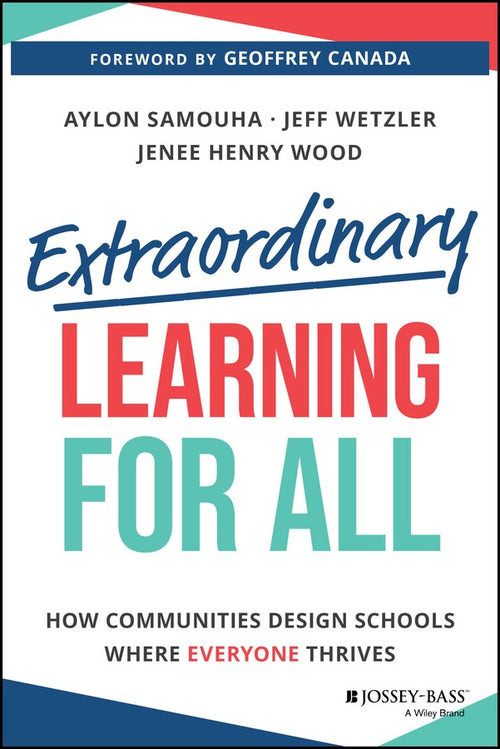
An Excerpt from Extraordinary Learning for All
The leadership team at Transcend Education highlights insights from innovators in education and presents a framework for creating a more meaningful schooling experience for all students.
-
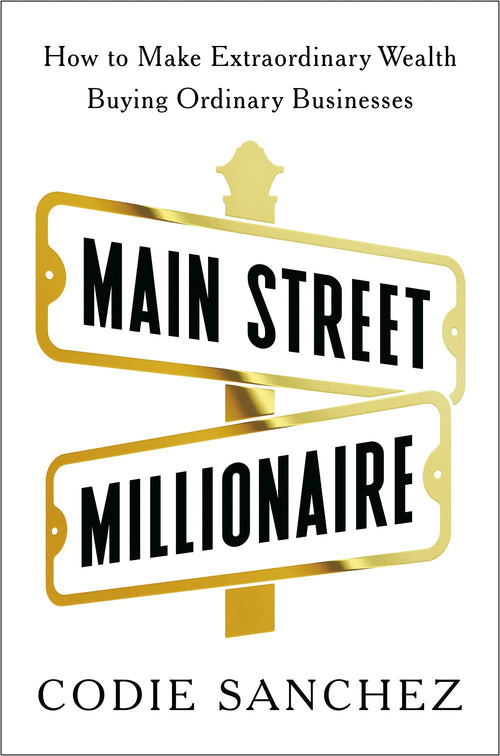
An Excerpt from Main Street Millionaire
Codie Sanchez encourages readers to pursue entrepreneurship by taking a look at the established local businesses whose founders need successors to continue their legacies.
-
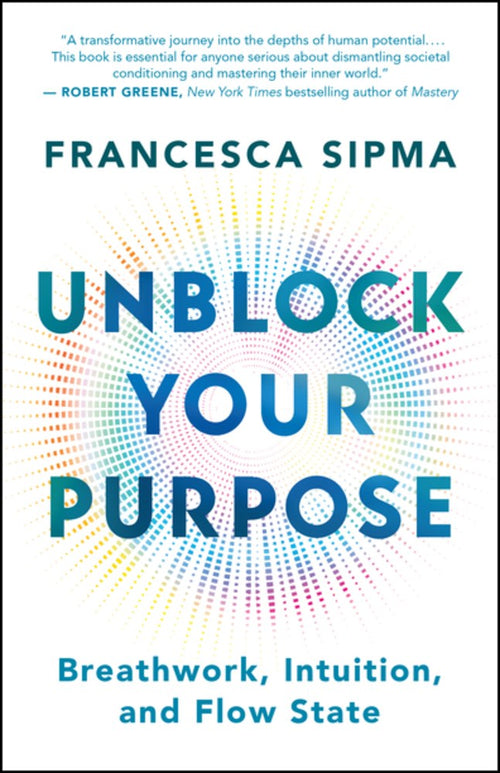
An Excerpt from Unblock Your Purpose
Francesca Sipma, the founder of HypnoBreathwork®, offers a detailed guide to overcoming mental blocks, finding a flow state, and uncovering one's deeper life purpose.
-
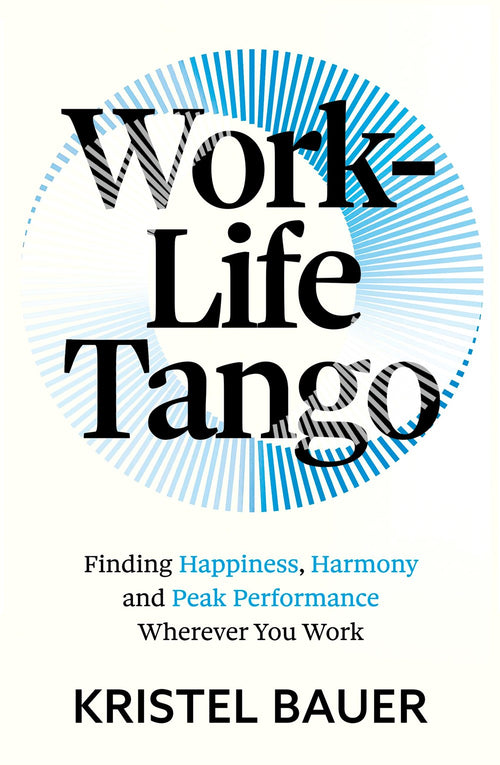
An Excerpt from Work-Life Tango
Corporate wellness advocate Kristel Bauer writes that achieving a work-life balance is not just about surviving—it's about thriving and finding the courage to embrace a fulfilling life.
-
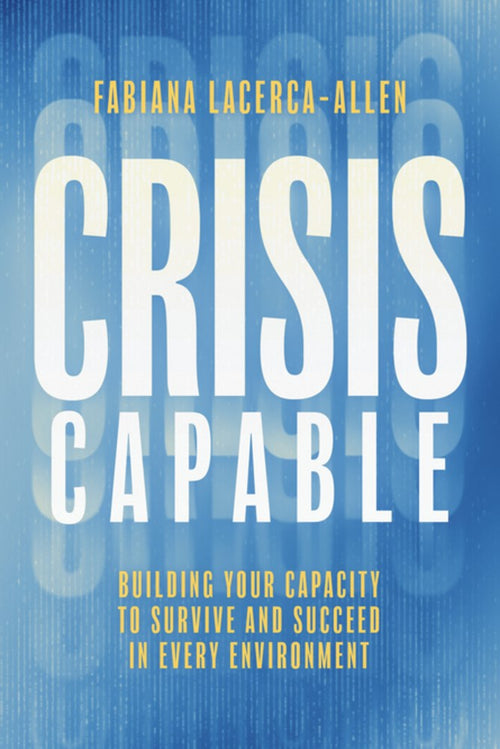
An Excerpt from Crisis Capable
Fabiana Lacerca-Allen uses her expertise in high-stakes negotiations to help readers navigate moral dilemmas and identify when to leave situations that conflict with their values.
-
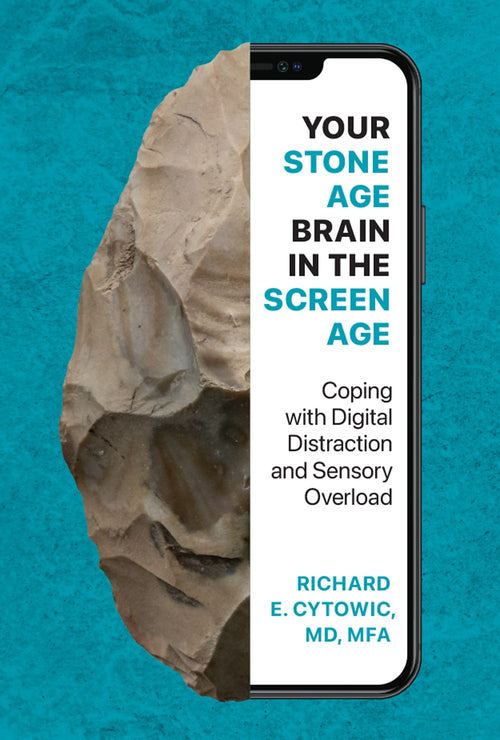
An Excerpt from Your Stone Age Brain in the Screen Age
Neurologist Richard Cytowic explores the connection between our Stone Age-wired brains and contemporary screen addictions, offering insights on how to regain calm and focus.
-
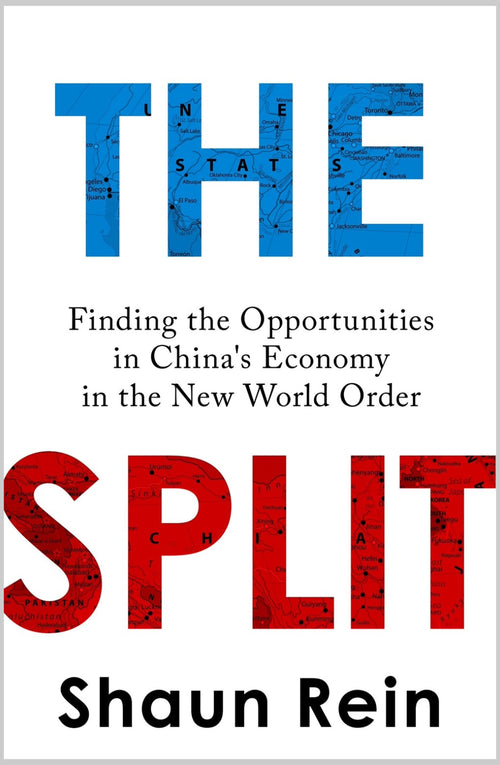
An Excerpt from The Split
Shaun Rein writes that the Chinese consumer market has significant untapped potential, and recent economic policy changes offer investors an ideal opportunity to engage.
-
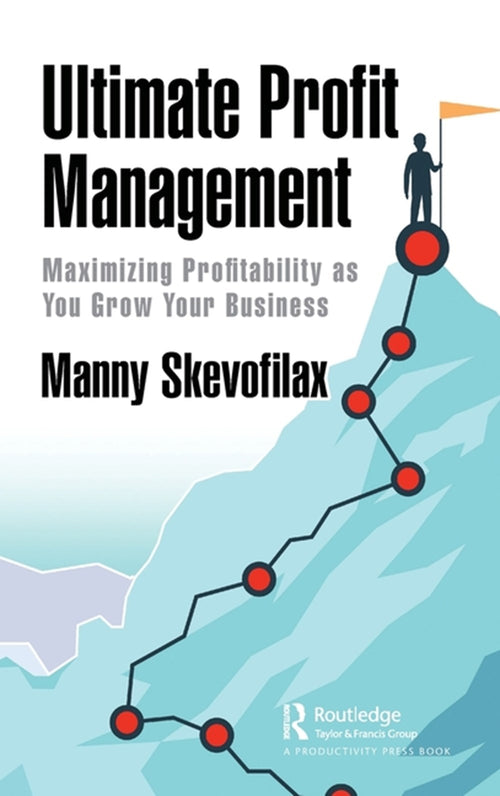
An Excerpt from Ultimate Profit Management
Use this book as a guide. In it, the author covers the most important aspects of reasonable, prudent growth that will avoid debt and allow you, your partners, and business associates a productive and non-stressful existence with a business that grows and profits correctly.
-
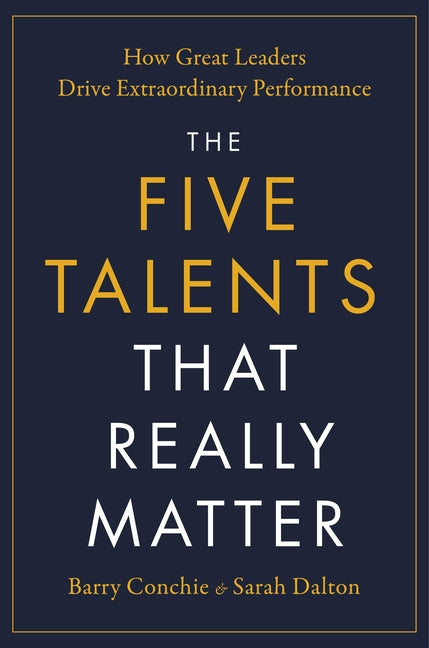
An Excerpt from The Five Talents That Really Matter
A former Gallup Global Leadership Research and Development leader demystifies the aura and complexity surrounding high performing leaders through original research and interviews with high-performing global leaders.
-
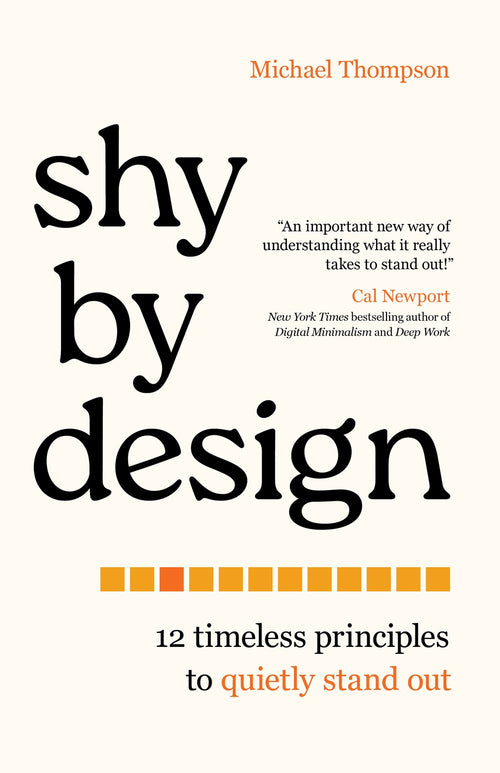
An Excerpt from Shy by Design
Michael Thompson provides a powerful guide to leading with quiet conviction and uplifting others on the journey to success.
-
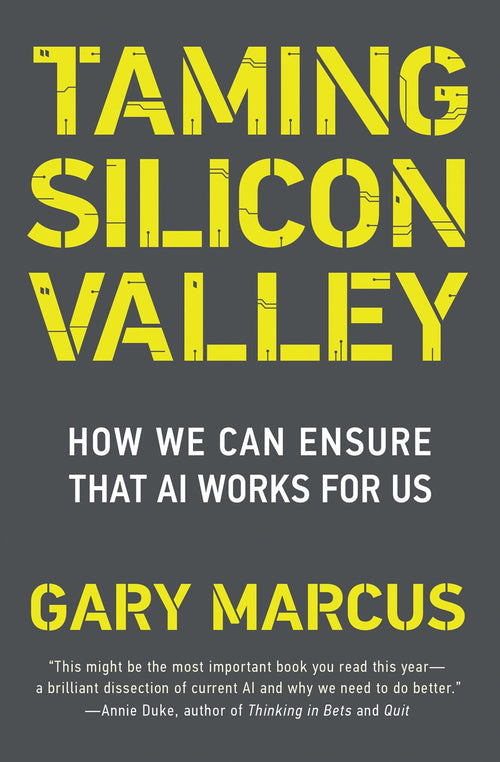
An Excerpt from Taming Silicon Valley
Leading AI expert Gary Marcus simplifies the concept of artificial intelligence, highlights its potential and dangers, and emphasizes the need for accountability from policymakers and tech companies.
-
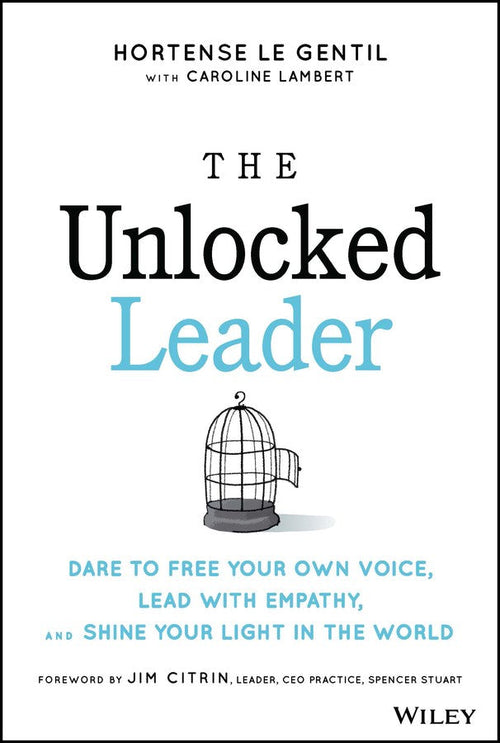
An Excerpt from The Unlocked Leader
A practical and impactful guide to identify and free yourself from the mind-traps that hold you back so that you can become a powerful human leader and unlock extraordinary performance.
-
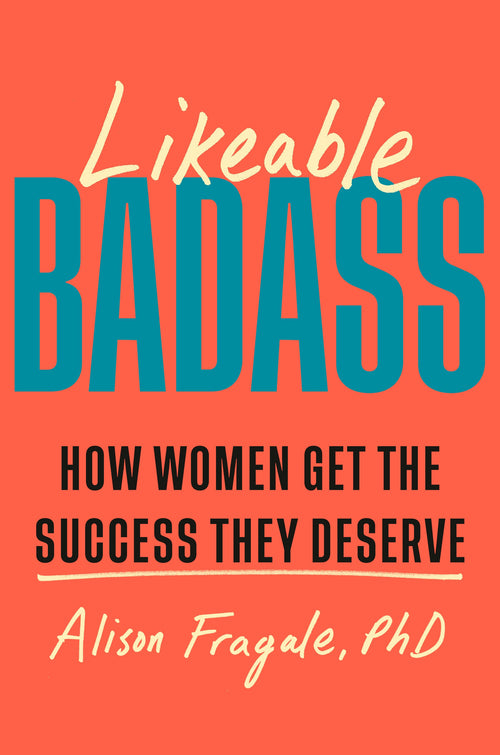
An Excerpt from Likable Badass
Behavioral scientist Alison Fragale offers powerful new insights and a practical playbook for women to advance in any workplace, full of tips, tricks, and strategies to help secure that elusive corner office.
-
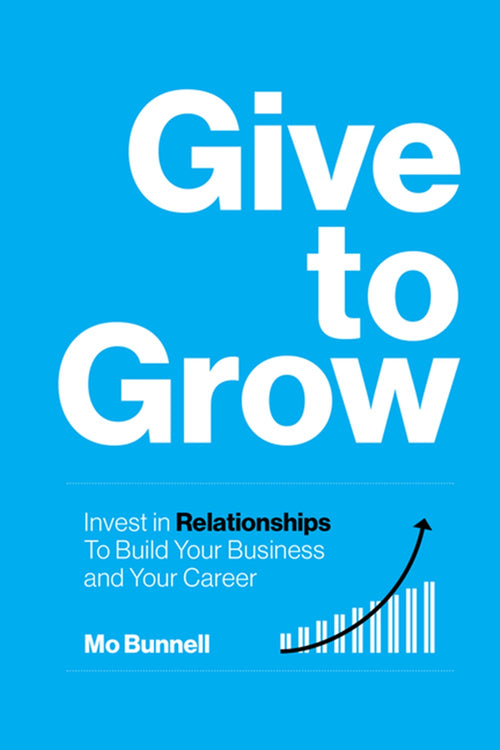
An Excerpt from Give to Grow
"It's always your move and there's always a way to be helpful."
-
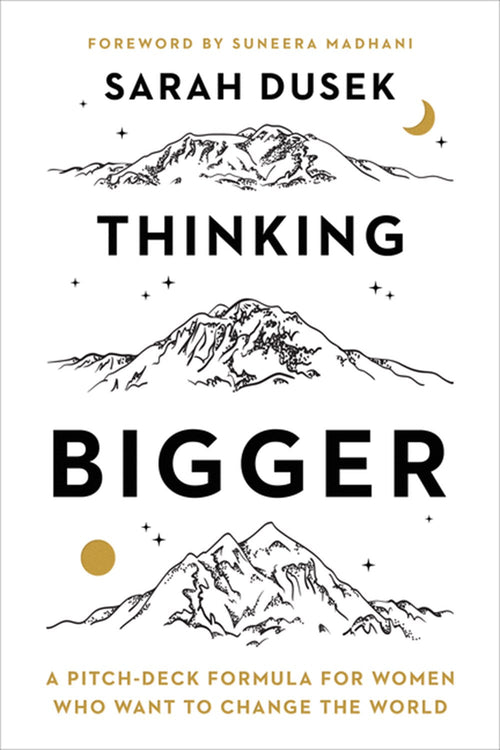
An Excerpt from Thinking Bigger
A guide for women entrepreneurs to help them get the financing they need to build big businesses and change our world.
-
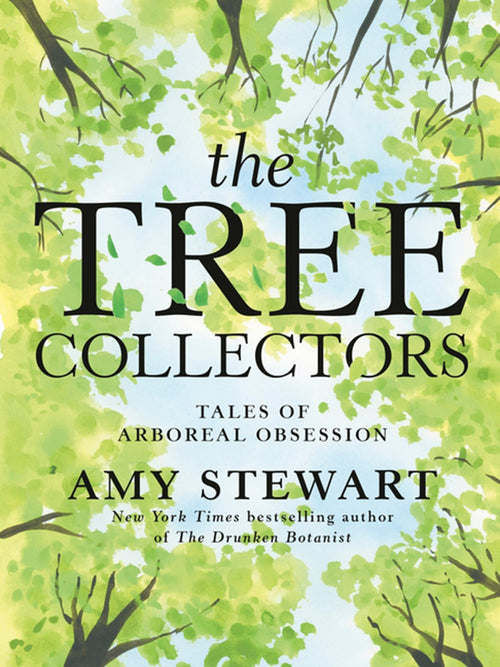
An Excerpt from The Tree Collectors
Fifty gorgeously illustrated vignettes of remarkable people whose lives have been transformed by their obsessive passion for trees--from Amy Stewart, the New York Times bestselling author of The Drunken Botanist.
-
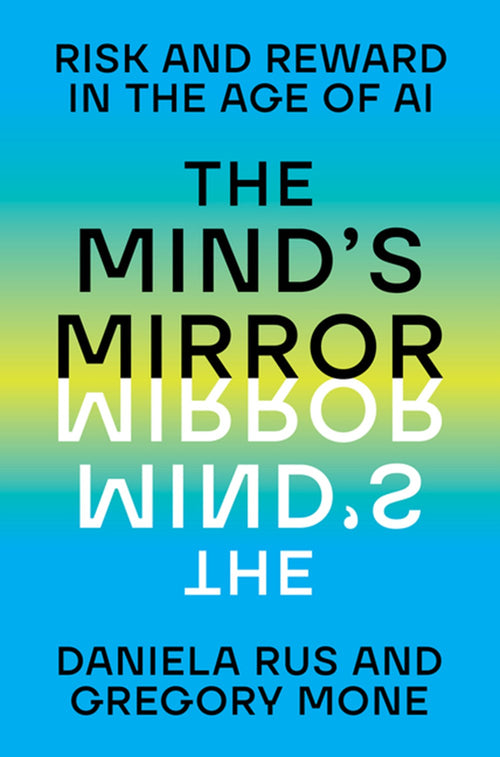
An Excerpt from The Mind's Mirror
An exciting introduction to the true potential of AI from the director of MIT’s Computer Science and Artificial Intelligence Laboratory.
-
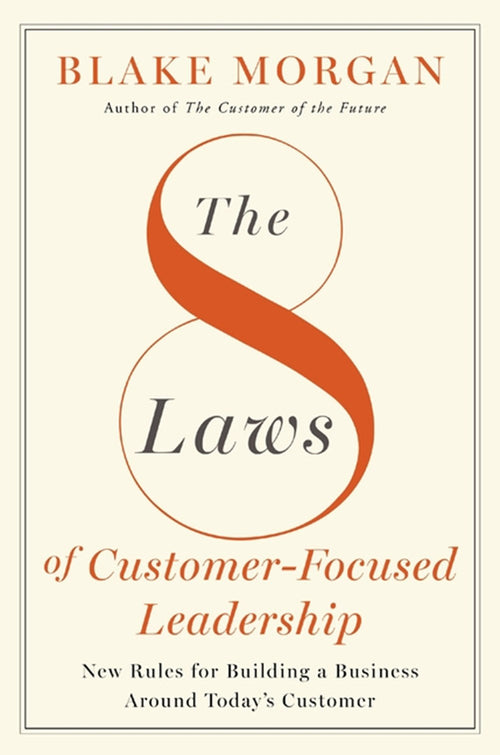
An Excerpt from The 8 Laws of Customer-Focused Leadership
A leadership playbook for making customer experience a core aspect of your business.
-
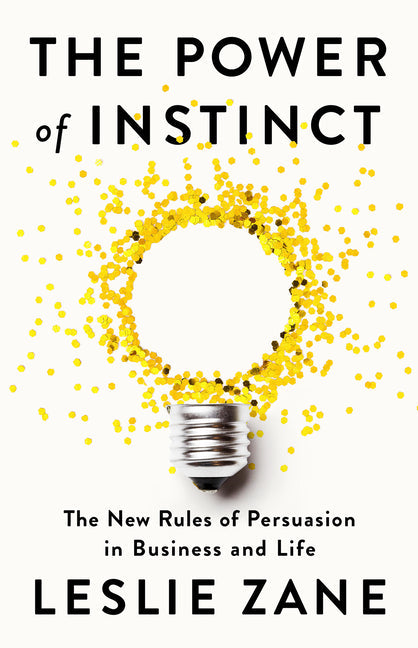
An Excerpt from The Power of Instinct
Award-winning Fortune 500 brand consultant and behavioral expert Leslie Zane shatters conventional marketing wisdom, showing readers how to tap into the hidden brain where instinct prevails, creating a powerful network of connections that drive people to buy your product, company, or vision.
-
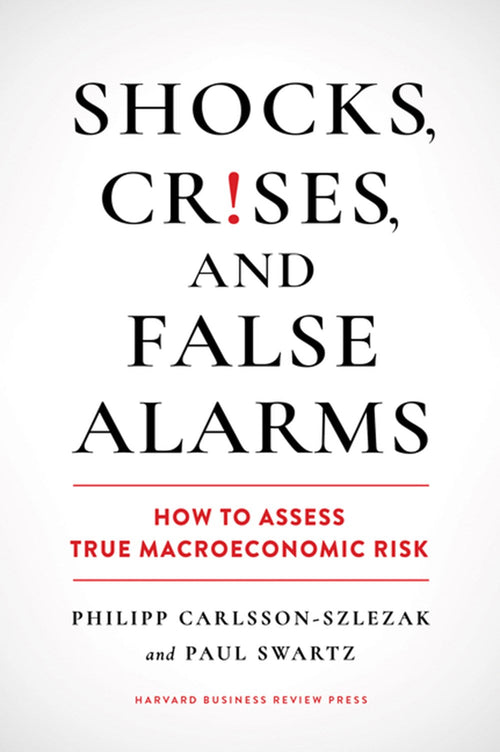
An Excerpt from Shocks, Crises, and False Alarms
An essential new guide to navigating macroeconomic risk.
-
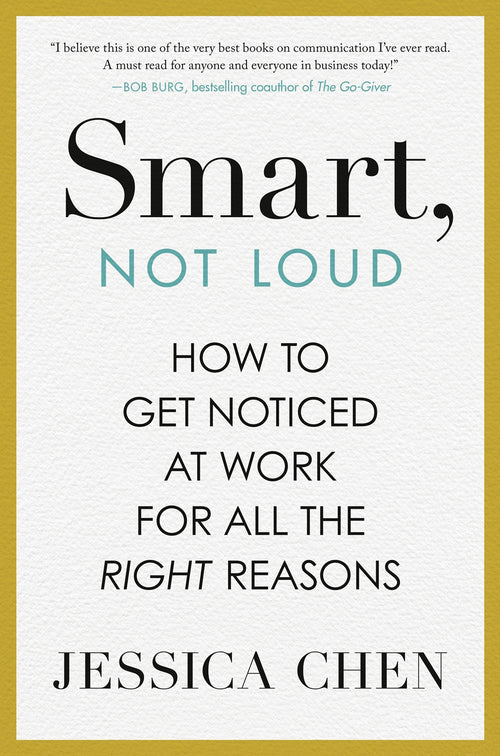
An Excerpt from Smart, Not Loud
Business communication expert Jessica Chen provides a complete guide to help individuals effectively advocate for themselves while maintaining authenticity in the workplace.
-
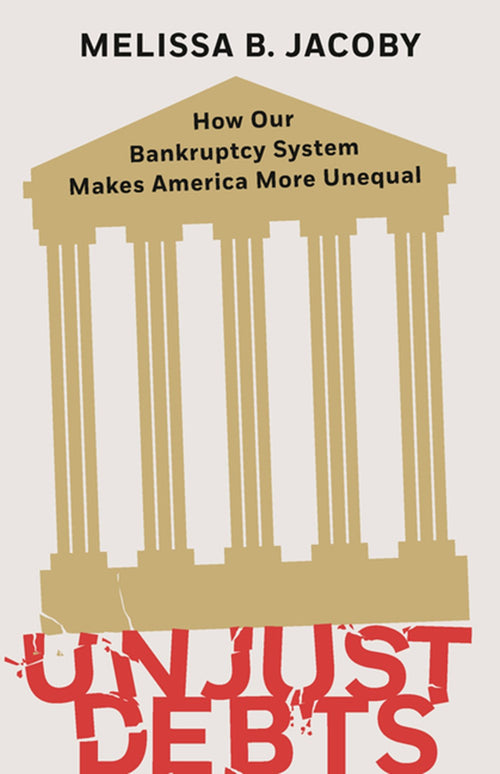
An Excerpt from Unjust Debts
A groundbreaking look at the hidden role of bankruptcy in perpetuating inequality in America, from an expert in the field.
-
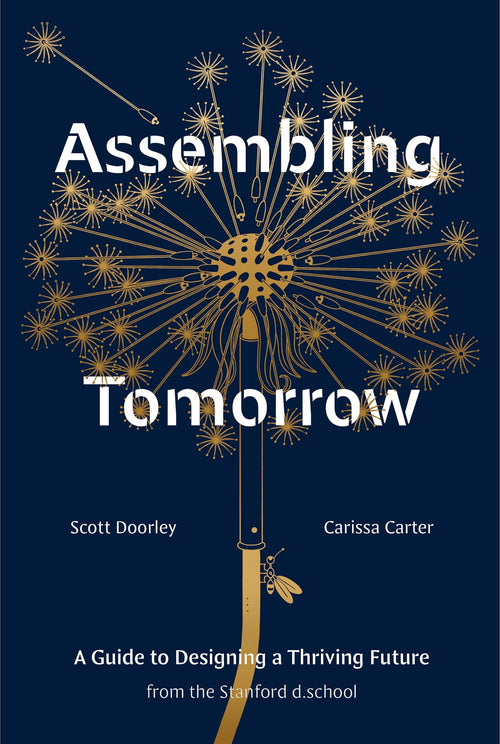
An Excerpt from Assembling Tomorrow
A powerful guide to why even the most well-intentioned innovations go haywire, and the surprising ways we can change course to create a more positive future, by two celebrated experts working at the intersection of design, technology, and learning at Stanford University’s acclaimed d.school.
-
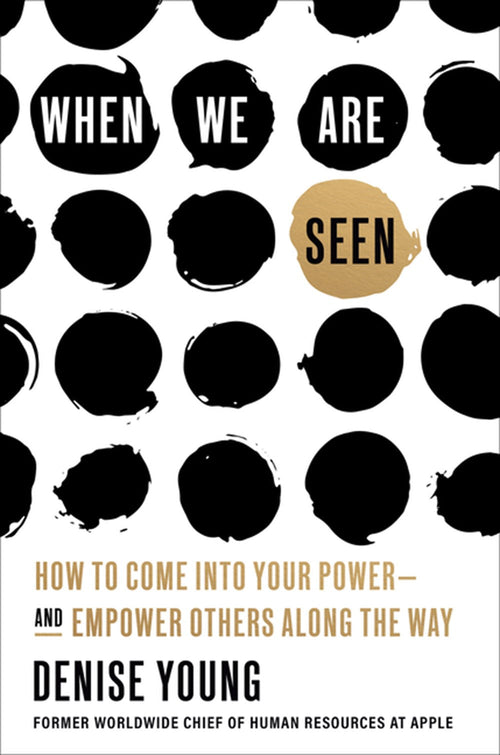
An Excerpt from When We Are Seen
From one of the first and few women of color to reach the c-suite in Silicon Valley, Apple’s former chief of HR, co-creator of the Apple Store culture, and first VP of inclusion and diversity, comes a heartfelt story of growing up Black and female in a world with little regard for either and a practical road map for embodying the best in yourself and emboldening others along the way.
-
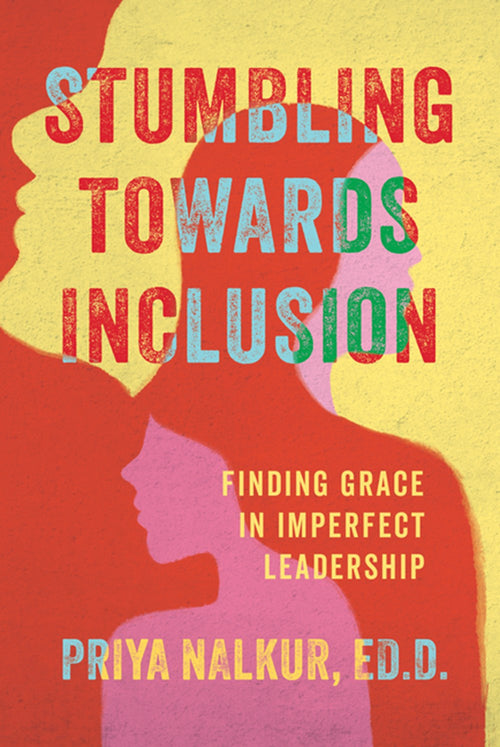
An Excerpt from Stumbling Toward Inclusion
In her work with hundreds of companies and CEOs, Dr. Priya Nalkur has found that many leaders want to advance inclusion and equity in the workplace, but aren't sure how. Knowing that the stakes are high, leaders are afraid of messing up and saying the wrong thing. She has distilled her extensive coaching experience into a set of practical tools for navigating uncertain waters.
-
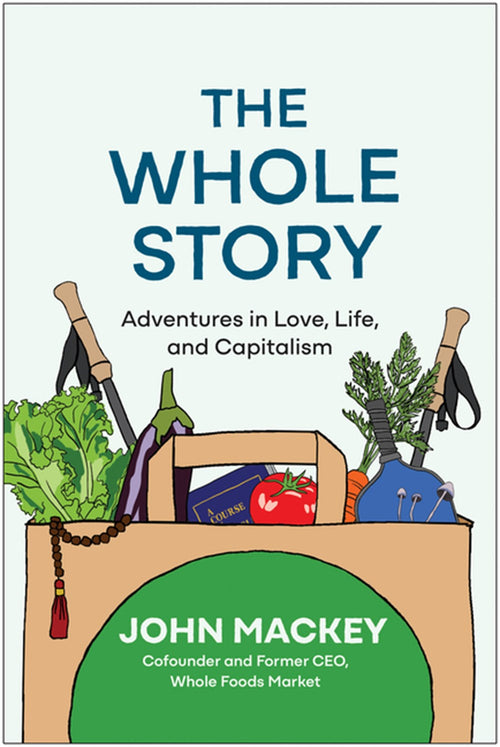
An Excerpt from The Whole Story
Whole Foods Market’s Cofounder and CEO for 44 years, John Mackey offers an intimate and provocative account of the rise of this iconic company and the personal and spiritual journey that inspired its remarkable impact.
